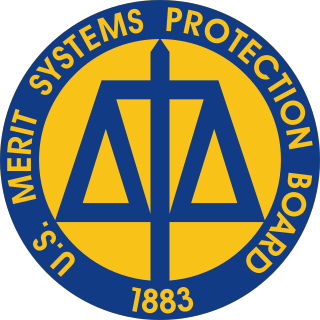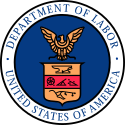
Workers' compensation or workers' comp is a form of insurance providing wage replacement and medical benefits to employees injured in the course of employment in exchange for mandatory relinquishment of the employee's right to sue his or her employer for the tort of negligence. The trade-off between assured, limited coverage and lack of recourse outside the worker compensation system is known as "the compensation bargain". One of the problems that the compensation bargain solved is the problem of employers becoming insolvent as a result of high damage awards. The system of collective liability was created to prevent that, and thus to ensure security of compensation to the workers.
In common law systems, a superior court is a court of general competence which typically has unlimited jurisdiction with regard to civil and criminal legal cases. A superior court is "superior" in relation to a court with limited jurisdiction, which is restricted to civil cases involving monetary amounts with a specific limit, or criminal cases involving offenses of a less serious nature. A superior court may hear appeals from lower courts. The highest of the superior courts is the Supreme court.
The court system of Canada forms the judicial branch of government, formally known as "The Queen on the Bench", which interprets the law and is made up of many courts differing in levels of legal superiority and separated by jurisdiction. Some of the courts are federal in nature, while others are provincial or territorial.
An administrative law judge (ALJ) in the United States is a judge and trier of fact who both presides over trials and adjudicates claims or disputes involving administrative law.
An unfair labor practice (ULP) in US labor law refers to certain actions taken by employers or unions that violate the National Labor Relations Act of 1935 29 U.S.C. § 151–169 and other legislation. Such acts are investigated by the National Labor Relations Board (NLRB).

An abstention doctrine is any of several doctrines that a United States court may apply to refuse to hear a case if hearing the case would potentially intrude upon the powers of another court. Such doctrines are usually invoked where lawsuits involving the same issues are brought in two different court systems at the same time.
Employment tribunals are tribunal public bodies in England and Wales and Scotland which have statutory jurisdiction to hear many kinds of disputes between employers and employees. The most common disputes are concerned with unfair dismissal, redundancy payments and employment discrimination. The tribunals are part of the UK tribunals system, administered by the Tribunals Service and regulated and supervised by the Administrative Justice and Tribunals Council.

The Merit Systems Protection Board (MSPB) is an independent quasi-judicial agency established in 1979 to protect federal merit systems against partisan political and other prohibited personnel practices and to ensure adequate protection for federal employees against abuses by agency management.

In April 1996, the United States Secretary of Labor established the Administrative Review Board (ARB) to succeed the former Board of Service Contract Appeals, Wage Appeals Board, and Office of Administrative Appeals. The board consists of a maximum of five members, one of whom is designated the chair. The Secretary of Labor appoints the members based upon their qualifications and competence in matters within the board's authority.
Cleveland Board of Education v. Loudermill, 470 U.S. 532 (1985), was a United States Supreme Court case in which the Court held that:

The Executive Office for Immigration Review (EOIR) is a sub-agency of the United States Department of Justice whose chief function is to conduct removal proceedings in immigration courts and adjudicate appeals arising from the proceedings. These administrative proceedings determine the removability and admissibility of individuals in the United States. As of February 20, 2020, there were sixty-nine immigration courts throughout the United States.
Thomas v. Review Board of the Indiana Employment Security Division, 450 U.S. 707 (1981), was a case in which the Supreme Court of the United States held that Indiana's denial of unemployment compensation benefits to petitioner violated his First Amendment right to free exercise of religion, under Sherbert v. Verner (1963).
The Defense Base Act (DBA) is an extension of the federal workers' compensation program that covers longshoremen and harbor workers, the Longshore and Harbor Workers' Compensation Act 33 U.S.C. §§ 901–950. The DBA covers persons employed at United States defense bases overseas. The DBA is designed to provide medical treatment and compensation to employees of defense contractors injured in the scope and course of employment. The DBA is administered by the United States Department of Labor.
Crowell v. Benson, 285 U.S. 22 (1932) is the landmark United States Supreme Court administrative law decision that outlined the adjudicatory authority of administrative agencies under Article III of the Constitution. The Court held that the United States Employees' Compensation Commission satisfied Fifth Amendment Due Process and the requirements of Article III with its court-like procedures and because it invests the final power of decision in Article III courts.
The California Labor Code, more formally known as "the Labor Code", is a collection of civil law statutes for the State of California. The code is made up of statutes which govern the general obligations and rights of persons within the jurisdiction of the State of California.
Lemmerman v. A.T. Williams Oil Co., 318 N.C. 577, 350 S.E.2d 83 (1986), was a case before the Supreme Court of North Carolina, which hinged on the question of whether the plaintiff met the definition as an "employee" of the A.T. Williams Oil Co. under the state's Workers' Compensation Act.
Human resource management in public administration concerns human resource management as it applies specifically to the field of public administration. It is considered to be an in-house structure that ensures unbiased treatment, ethical standards, and promotes a value-based system.
The Workplace Safety and Insurance Appeals Tribunal (WSIAT) is an agency of the Ontario Ministry of Labour, Government of Ontario. It is located in Toronto, Ontario at 505 University Avenue, 7th floor. The Tribunal is the final level of appeal to which workers and employers may bring disputes regarding workers' compensation matters in Ontario.
Elgin v. Department of Treasury, 567 U.S. 1 (2012), was a United States Supreme Court case where the Court ruled that the Civil Service Reform Act of 1978 (CSRA) gives exclusive jurisdiction for claims under the Act to the U.S. Court of Appeals for the Federal Circuit. Additionally, the Court held that the Act bars federal district courts from ruling on matters related to the act including adverse employment actions of the federal departments, and allows the Merit Systems Protection Board to hear constitutional arguments for wrongful employee severance and adverse employment actions. It was a 6-3 decision, with the majority opinion delivered by Justice Clarence Thomas. The case greatly limited the recourse of federal employees to the courts for adverse employment practices, allowing such recourse only to a few, specific courts as aforementioned.
The California Department of Industrial Relations (DIR) is a department of the government of the state of California which was initially created in 1927. It is currently part of the Cabinet-level California Labor and Workforce Development Agency. It is currently headquartered at the Elihu M. Harris State Office Building in Oakland.






